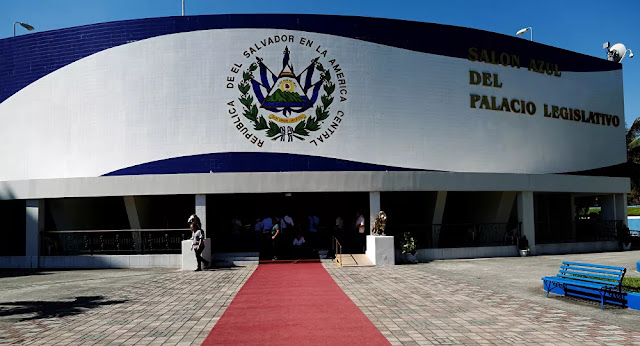El Salvador’s Legislative Assembly has voted overwhelmingly in favor of reforms to the Electoral Code, reducing the number of deputies from 84 to 60.
The proposal, originally put forth by President Nayib Bukele on June 1, was approved early on June 7.
Marcela Pineda, a deputy from the governing party Nuevas Ideas, argued that this reform aims to guarantee Salvadorans the right to an equal vote.
During a lengthy debate concerning the constitutional compliance of the changes, she, along with the Assembly’s first vice-president Suecy Callejas and other ruling party members, argued that the current system of electing deputies has led to an imbalance, with minority parties securing legislator seats with fewer votes.

The new reform replaces the current system with the D’Hondt method, a formula that primarily allocates seats to the highest vote-getters.
It was conceived by Belgian jurist Victor d’Hondt in 1878 and is in line with Article 78 of the Constitution, which maintains that the vote should be free, direct, equal, and secret.
Opposition deputies from the Farabundo Martí National Liberation Front (FMLN), the Nationalist Republican Alliance (ARENA), and the Vamos party rejected the reform.
They saw it as an attempt to consolidate the governing party’s power, particularly with the upcoming elections on February 4 of the following year.
The proposed changes, introduced by President Bukele in his fourth year in office, secured 66 votes in favor from Nuevas Ideas and its allies.
The reform was passed after a heated debate lasting over six hours, marked by allegations of corruption, incompetence, ignorance, and cowardice exchanged between pro-government and opposition deputies.
Proponents of the reform reminded the opposition that the Assembly originally had 60 deputies since 1983. The number was increased to 84 in 1991 by ARENA and remained unchanged after the Peace Accords of 1992.
Critics of the increase called it a corrupt pact to secure positions in the State apparatus.
Deputies vehemently dismissed this claim from FMLN, ARENA, and the Vamos party, who counter-accused their adversaries of corruption and of failing to deliver on their promises to the people.
The changes will take effect eight days after their publication in the Official Gazette and will be applied in the legislative elections on February 4 of the next year.
Also under consideration is President Bukele’s proposal to reduce the number of municipalities in the country from 262 to 44.
This initiative, presented by Interior Minister Juan Carlos Bidegain, is currently under review by the Political Commission and is expected to be debated in the ordinary session on Tuesday, June 13.
El Salvador news, English news El Salvador, El Salvador parliament, El Salvador’s Parliament reduces to 60 the number of the current 84 deputies, political news El Salvador

